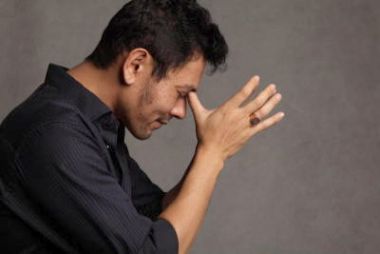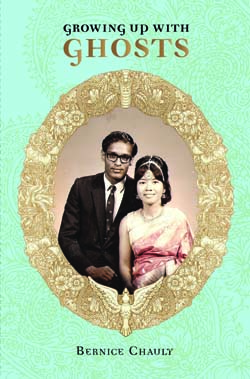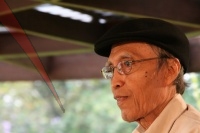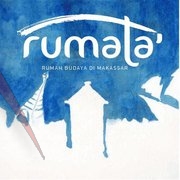Writers Unlimited — Winternachten 2012 The Hague
January 18, 2012
Writers Unlimited — Winternachten 2012 The Hague
Keep on Dreaming!
A wink at the dreamers, the believers in utopias, the pursuers of ideals, that is the theme of the Writers Unlimited Winternachten Festival 2012. Writers and thinkers from the Netherlands and from afar speak out on their dreams, they dream with us about freedom and how it can be realised. Writers Unlimited Winternachten Festival 2012 offers a mixture of current affairs and literature, music and film in a varied programme in Theater aan het Spui and Filmhuis Den Haag. Most of the programmes are in English.
The festival begins on Thursday afternoon 19 January with the presentation of the Oxfam Novib PEN Awards. In the evening followed by the Winternachten lecture by the Nigerian writer Helon Habila (Oil on Water), who gave his speech the title Literature as a Way of Seeing.
On the evenings of Friday 20 and Saturday 21 January the Winternachten take place with varied programmes in five halls. With a ticket you can freely walk in and out of dozens of programmes with writers, films and musical performances. In addition to literature there are films and there is music, and at the end of the evening everyone dances into the night. This year for the first time there is an opportunity to have dinner in the theatre at 6.30 pm before the programmes.
On Saturday afternoon the NRC Readers’ Club discusses The Great Gatsby and on Sunday morning the live broadcast of VPRO’s OVT Live can be attended.
On Sunday morning VPRO’s OVT broadcasts live from the festival.
The festival ends on Sunday afternoon 22 January in the Koninklijke Schouwburg with a Tribute to Hella, a festive occasion, celebrating the life and work of Hella Haasse, with performances of among others Loes Luca and Willem Nijholt. Following it the Jan Campert Awards of the Municipality of The Hague will be presented, including the Constantijn Huygens Prize.
On Monday, Tuesday and Wednesday night the Filmhuis presents a series of films with introductions and post-screening discussions round the theme of ‘Keep on Dreaming’. On Wednesday night Theater aan het Spui presents the screening of Mahabharata, by Marjolijn van Heemstra and Satchit Puranik.
Meet the foreign authors in our Meet & Greets, in Theater Dakota and Theater Concordia among other venues.
Post taken from: Writers Unlimited Winternachten Festival 2012
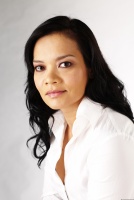 Bernice Chauly
Bernice Chauly
(Georgetown, Penang, Malaysia, 1968) is a Malaysian writer, poet, actor, photographer and filmmaker. She graduated with a B.Ed in English Literature and TESL (Teaching English as a Second Language) from the University of Winnipeg, Canada, and has worked extensively in the arts for over 20 years. Of Chinese and Punjabi parentage, her work stems from the desire to tell stories, and she has worked with marginalised communities from sex workers and refugees to indigenous peoples, in mediums that incorporate film, photography and prose. She has published two collections of poetry, going there and coming back (1997), The Book of Sins (2008), a collection of short stories, Lost in KL (2008) and a critically-acclaimed memoir Growing Up With Ghosts (2011), an exploration of grief, personal and political history, and bloodlines. She works in both Bahasa Malaysia and English, and her work has been exhibited, screened, published locally and internationally. She is also the founder of Readings and CeritAku, two live literary platforms in Kuala Lumpur, now in its eighth year. She lives in Kuala Lumpur with her two daughters and she keeps a blog of her work at bernicechauly.wordpress.com.
participant in
Meet These Writers by Rouwen Lin
November 22, 2011
AFTER three months of preparation and with five writers now on board, the latest addition to Penang’s arts and culture calendar is set to take off this weekend.
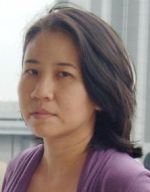
Shih-Li Kow’s debut collection of short stories, Ripples And Other Stories, was shortlisted for the Frank O’Connor International Award for Short Stories.
The two-day George Town Literary Festival started with a vision: when Penang Global Tourism’s managing director Ooi Geok Ling got wind of Writers Unlimited 2011 coming to Kuala Lumpur in June this year, she approached festival director Bernice Chauly to ask if she would like to do something similar in Penang.
(Formerly known as Winternachten, Writers Unlimited organises an annual international literary festival every January in The Hague in the Netherlands, as well as other literary events abroad in cooperation with local partner organisations.)
“It was a great idea, but I wanted to focus on Writers Unlimited first, so I told her that I would think about it. It was to be held less than six months after Writers Unlimited and I didn’t really want to do it myself,” says Chauly at an interview in Kuala Lumpur last Wednesday.
She decided to take the plunge when Reka Art Space owner Chee Sek Thim offered to produce the George Town fest on the condition that Chauly take on the role of festival curator.
“That’s when Sek Thim and I started working together. We spent the last three months putting this together. It’s the first literary festival in Penang, so the obvious theme was history and heritage,” says Chauly.
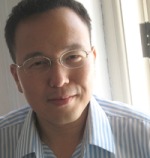
Tan Twan Eng, whose novel, A Gift Of Rain, was longlisted for the Booker Prize, will be giving us a sneak peek of his latest book, The Garden Of Eveing Mists.
The state-sponsored festival, with the theme “History and Heritage – Where Are Our Stories”, encourages an exploration of our roots. “It’s about that connection with the place of your birth and the place that you come from. It’s all about going back to the beginning of your stories,” Chauly explains.
She adds that Penang has changed drastically in recent years. “There is a real buzz to it now, there’s a sense of possibility in the air. The restoration looks great, but it’s not just about preserving old things; it’s also about creating new things. I think Penang is ready for the future, and ready for such a festival.
“It will also be very interesting for me because all previous literary festivals I’ve done have been held in KL. I think the Penang festival will attract a very eclectic audience and I’m interested in how they will react to it.”
The festival will open on Nov 26 with a book launch and reading of Bila Terkenang Zaman Dahulu, a book of pantun (Malay poems in traditional form) collected from the oral and written archives of Penang, and edited by National Laureate Muhammad Haji Salleh.
Penang-born 2007 Man Booker Prize nominee Tan Twan Eng, who currently resides in South Africa, will read from his second novel, The Garden Of Evening Mists, which is set in Cameron Highlands, Pahang, in the 1950s.
“It’s kind of like a sneak preview as the novel will only be available in January next year,” says Chauly.
The other three participating writers are Farish Ahmad Noor, Iskandar Al-Bakri and Shih-Li Kow. Moderators are BFM Radio’s Sharaad Kuttan and online news and commentary portal The Nut Graph’s Jacqueline Ann Surin.
The programme line-up includes public readings and discussions by the participating writers (mostly free events) and the festival will close with a performance by guitarist-composer Az Samad.

National laureate Muhammad Haji Salleh will launch his latest book, Bila Terkenang Zaman Dahulu, which celebrates traditional poetry.
“I wanted to keep the festival small, local and intimate. Many of us (writers) perform in festivals around the world, but rarely do performances in Malaysia.
“It’s important that Malaysian writers remain in touch with Malaysian audiences. Because the festival is small, everyone will have a chance to talk to everyone else – be it a writer with another writer, or the audience with the writers,” says Chauly.
Having being part of the audience as well as a participating writer in numerous literary festivals around the world, Chauly says, “I know what writers want, and I know what audiences want. I drew on my travel experiences, participation in various festivals and the Writers Unlimited earlier this year to pull together this festival.”
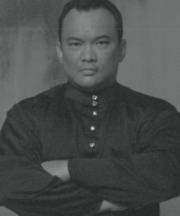
Iskandar Al-Bakri’s first novel, The Beruas Prophecy, is his attempt to discover the dark history of the Malay Peninsula that involves politically influential Malay secret societies in the early 19th century.
She applauds the Penang State Government for supporting such an event: “It’s very visionary, very forward-looking of them. They gave us complete freedom in choosing the writers, content and theme.
“The long-term plan is to sustain this every year and in the future, it might even include writers who write in Chinese or Tamil. A literary festival has to be free – there should be no censorship or limitations on what you can talk about or what you can’t. And that, I think, is a big challenge for Malaysia,” she concludes.
The George Town Literary Festival will run from Nov 26 to 27 at China House (No. 183B, Lebuh Victoria) and the E&O Hotel (No. 10, Lebuh Farquhar) in George Town.
For more details, visit gtlfestival.blogspot.com, e-mail gtlfestival@gmail.com or call 017-872 7721.
—
Article taken from The Star
Universal Search by Daphne Lee
November 22, 2011
At some point in everyone’s lives, we need to know where we came from.
WHAT stands out for me when I think of Bernice Chauly’s book, Growing Up With Ghosts – A Memoir, is the story of her father’s death. It is where the book begins and Chauly’s dreamlike and poetic description of how her three-year-old self deals with the sudden loss of a beloved parent is, for me, the most heartbreaking and compelling thing in this book.
Later, when introduced to the young Bernard – the curious, adventurous trainee teacher, the passionate young lover, the idealistic newly wed – it is my initial vision of him as a loving, devoted father that fixes my attention and makes me want to learn more about him.
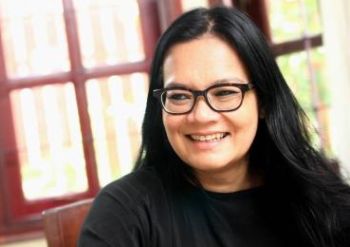
Exorcism: Bernice Chauly wrote her family memoir in part as a means of dealing with the many deaths the family has endured.
His death affected Chauly powerfully, but it was just one of many losses her extended family had to endure. Deep in the heart of the book is the family curse that Chauly seeks to understand. Its almost gothic details, including a pilgrimage to India to visit an ancient snake temple, imbue the book with a sense of mystery and deep, devastating horror.
In our interview (conducted via e-mail recently), Chauly, 43, said the real reason for writing the book was to find “the root of the curse”, and understand why all the men in her family died. “I grew up haunted by grief, and my grief became a ghost, I had to confront it and finally let it go,” she says.
 She goes on to say that she used “ghosts” as a metaphor “for many things – for untold histories, for the voices who lived through difficult times, who were never heard; for things that scare you, and things that come back to haunt you, for the dead whom I mourned, for the dead that my ancestors mourned, the dead who became ghosts, who were forgotten, who never told their stories and who were never heard, and who never got a chance to exorcise their grief.”
She goes on to say that she used “ghosts” as a metaphor “for many things – for untold histories, for the voices who lived through difficult times, who were never heard; for things that scare you, and things that come back to haunt you, for the dead whom I mourned, for the dead that my ancestors mourned, the dead who became ghosts, who were forgotten, who never told their stories and who were never heard, and who never got a chance to exorcise their grief.”
Writing the book, Chauly says, was “cathartic in every way”, an exorcism of sorts that allowed her to make peace with the “ghosts” and with herself. The author uses the voices of her grandparents and her parents to tell a story of struggle and of hardship, of hope and of love. Chauly’s own narrative binds the different voices together and represents the link between the past and the present.
How did you decide on the way the book is presented? What was your aim?
I did not want to write it in a straightforward narrative style – meaning one singular narrative throughout, mine – as I felt that this would be too conventional and did not best serve the stories I wanted to tell. I wanted to redefine memoir writing. History needs to be told from many perspectives and I didn’t want to be the sole voice. I needed to be honest to my ancestors, to use their own words, and to re-tell their stories.
My Punjabi grandmother was illiterate and my Chinese grandmother could read and write basic Mandarin; the men on the other hand, were literate and educated. I wanted to include their voices, their stories. The aim was to have a tapestry of voices, to use existing words that were left behind and to piece together something that was indicative of real people, to celebrate oral history in ways that may challenge the notion of the conventional memoir.
Why did you decide to use original documents – letters from your father to your mother, your mother’s journal, your letters to your mother, etc – in the book?
My parents kept everything – photos, letters, cards, clothes, books. A lot of these things I still have, but their letters, journals and scrapbooks are the most precious. My grandfather’s letter is one of my most treasured possessions. As a writer, I appreciate these documents very much. It just seemed to make sense to use them all. This is a work of non-fiction. If I had chosen to write a work of fiction, it would have been a completely different book.
Why didn’t you write about your marriage or the birth of your children (Chauly has two daughters)?
I saw that as a part of my life that was separate from my personal history, my Self. That those were issues of a different nature, that related to me more as a woman, a mother, a creative person, my personal politics, someone struggling to find her voice, her art, make sense of the world. I think my poems reflect this more and that is what my poetry is for. This (book) was about me coming to terms with my personal history, of being the product of two distinct cultures, of coming to terms with who I am, first and foremost.
What appeal do you feel the book will have for those who are not part of your family or close friends of the family?
I think it’s a universal story, a search for bloodlines. So many of us come from different places, it’s the search to find roots, one’s place in the larger scheme of things, to acknowledge that we share similar histories, to study the Punjabi and Chinese diasporas and how we came to be where we are. It’s acceptance of who we are, and to not forget where we came from.
What are your plans now that this book has been published? What are you working on at the moment?
I had plans of wanting to adapt it to a one-woman play, to have it staged. The Australian writer/photographer/performer William Yang has done something similar with his own family stories, Silence, which was a multi-media performance with slides and film. It was very inspiring when I was grappling with this work. But I think the weight of the book has now been lifted. I want to let it go and move on. I am currently working on curating a writers festival in George Town (see story above) and doing research for a novel. I have also started work on a new collection of short stories and a collection of poems.
Growing Up With Ghosts by Bernice Chauly (ISBN: 978-9834484583) is published by Matahari Books and is available in most Malaysian bookstores and from Amazon online.
—
Post taken from The Star
Well Lit: A fiery, furious love by Umapagan Ampikaipakan
September 18, 2011
MEMOIRS are, by definition, works in progress. They should, for all intents and purposes, take a lifetime to write. They should communicate change. They should symbolise growth. They should be reflective. In an age where everyone is looking for their 15 seconds of fame, we have come to expect so much more from these sorts of things. We want revelation. We want honesty and candour. We want to be surprised. For what is the point indulging in such reading if we didn’t actually learn from it, something new, something that would, God forbid, further enrich our reality.
Suffice to say that Bernice Chauly does not disappoint. It has taken her over two decades to put this book together and it is an absolute masterpiece. A magnum opus about family, love, death, the plight of star-crossed lovers, the diaspora of all those displaced by time and by space. It will tear your heart out. It will make you bleed. It will likely be the most Malaysian thing you read this year. Why? Simply because this story, of Chauly’s parents, of their forbidden love, steeped in passion and punctuated by tragedy, is as much hers as it is ours. Also because we have all had startlingly similar experiences, be it in our own lives or in those lives close to ours and this quest — of self-discovery, coming to terms with one’s sense of self, dealing with those complex questions of identity — is something we’ve all undertaken, or likely will, at some point in our lives. Why is that? Well, very simply because it comes with the territory. It is our tendency — the inescapable consequence of our curious living arrangements.
This book is nothing short of a labour of love. It is a work suffused with so much blood, sweat and tears. Every sentence is steeped in sentiment, in emotion so raw, so natural and instinctive, that its appeal is nothing short of universal.
There is a wonderful quality to Chauly’s prose. It is a style that stems from her well-established poetic roots. It is lyrical. There are moments when it borders on verse. Arranged with an almost metrical rhythm. Like when she writes of her origins. “I am Punjabi, a sardarni of the Khalsa. Of the pure, from the tenets sprung from the loins of Guru Nanak. From the plains of the Punjab, and the wheat fields of Amritsar. I am Chinese, from the port city of Canton, from Fatshan, from Lam Soy Chea, from the village of fishermen and of joss stick makers.” It possesses a choral character that demands to be read and read out loud. This is because Chauly has written more than just a memoir, she has compiled more than just a poignant catalogue of letters and diary entries and personal observations and scrapbook excerpts. Growing Up With Ghosts is an inadvertent play for voices.
Growing Up With Ghosts is many things. It is a biography, a diary and a history. It’s also a love story, a searching journey into the heart of the Punjab and into the Guangdong province and the story of an ancient curse. But most of all, it is the story of a little girl just looking for her father.
‘… leave my mother alone! Take me!’ This space is dedicated to publishing new writing from local and foreign writers. This month, we’re highlighting Growing Up With Ghosts by Bernice Chauly. Here, an excerpt of the memoir Loh Siew Yoke. Jelapang, Ipoh. 1944 They were older than me actually and I must have been about four when they died. I don’t even remember their names. They were always sick so they had to be sent away. My mother never talked about them at all. My dead sisters.
When the war broke out, I was sent to live in Jelapang, I lived with my eldest sister, Third Aunt and my grandmother, Ah Ma. My mother lived in the shophouse called Ying Woh on Leech Street with my father and Ah Yeh, my grandfather. Third Aunt was quite sickly as well. I think she suffered from heart disease. My grandparents favoured boys so my father and uncle were treated differently. Third Aunt was very good to me, took care of me and she used to sew me clothes. She was a good tailor. I remember she had to eat raw liver all the time. We believed that you had to treat blood with blood, you see. So Ah Ma would chop raw liver very fine, pour boiling water on it, swirl it around with chopsticks and Third Aunt would have to drink the liver water. She died when she was 28 or 29. She was so young, her body was so swollen when she died. I remember touching it. She was cold. Swollen and cold.
We lived on sweet potatoes for almost two years. There was nothing else to eat during the war. The shophouse sold pork but there wasn’t much meat then. I remember my stomach got so big once and Ah Ma said I had worms. It was from the sweet potatoes. Maybe because it wasn’t cooked long enough, maybe the water wasn’t clean enough. I don’t know. Maybe it’s because I was barefoot all the time. I had sores on my feet and had to soak my feet in hot water every day for hours. Just sitting there for hours with my feet in a tub of hot water.
Then one day, they came. The Japanese came. The house was old, wooden, and in the back there were jambu trees and then there was the jungle. I loved to climb the jambu trees. So one evening, they came. There was a commotion outside. I thought it was from the neighbour’s house. There was a lot of noise outside the door. They barged in, two or three of them, they had guns. They were talking very loudly and one of them went into the bedroom and started ransacking the drawers. I shouted at him in Cantonese, “What are you doing?” He turned around and slapped me. I ran to hide. They found nothing. They must have thought we were rich because we had a horse cart. We went from Jelapang to Ipoh in a horse cart in those days.
Then they dragged Ah Ma by her hair out the door and Third Aunt said, “She’s old, leave my mother alone! Take me!” But they were already out the door. We were crying, hugging each other, not knowing what to do. Somehow the news got to Ying Woh and then the rest of the family came. My father had to make a police report and the policeman came to ask us questions. Ah Ma had been kidnapped by the Japanese. I cried and I cried. We could not sleep that night.
The next morning, I got up very early, I went to the window to look out. And I will never forget this for the rest of my life.
I saw her running. Ah Ma looked as if she was flying, she was running through the air through the back of the house, through the jungle and the jambu trees. Her hair was wild. She ran into the house and collapsed onto the floor. Her feet were swollen and torn. She told us that she had escaped in the middle of the night when one of the Japanese soldiers went off to urinate. She had started running and ran and ran until it was dawn.
She said she was guided out of the jungle by a white butterfly.
—
post taken from New Straits Times
Exorcising her past
August 22, 2011
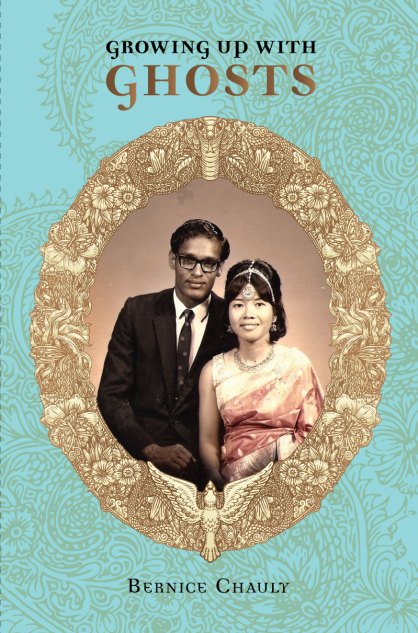 IT HAS taken 23 years for author, poet, actress and filmmaker Bernice Chauly (right) to complete her memoir, Growing Up with Ghosts.
IT HAS taken 23 years for author, poet, actress and filmmaker Bernice Chauly (right) to complete her memoir, Growing Up with Ghosts.
It’s the story of her parents and her ancestors. Her mother, a Chinese, and her father, a Punjabi, fell in love and got married despite fierce family objections. Their first child brought peace to the family but then tragedy struck.
The 43-year-old author shares some intimate details of how the memoir came about here.
What motivated you to base this memoir on your parents?
This book is not just about my parents. It’s about the Chinese and Punjabi diasporas and about how my ancestors (from China and India) came to this country. It is 100 years of my family history set against the history of this region.
I managed to trace five generations of my family from both sides and I have taken some creative liberties in telling their story. I call it ‘fictive’ autobiography.
The book is told in six different voices, so it has many narrators. I wanted to give voices to my ancestors. I have also used existing documents to tell this story.
My parents left everything behind, almost as if they were saying: ‘Bernice, here are our letters, our journals, our scrapbooks, our photos, so tell our story.’ And that is what I did.
What is the appealing factor of this book?
I think many Malaysians will be able to relate to this memoir because so many of us come from mixed marriages. It’s a very Malaysian story.
It is about the history (of Malaysia) told by ordinary people. It is about knowing that your ancestors lived through great difficulties – how they had struggled and survived.
It is about coming to terms with who you are and about bloodlines. It is also about love, death, grief and acceptance.
Tell us the process of writing this book.
I knew I would have to write this book since I was young. I started collecting my family stories and writing them down when I was a teenager in university.
But the actual writing and structuring of the book began about fours years ago. It was my mother’s death in 2007 (she died at the age of 66 from cancer) which propelled me to finish it.
After her death, I went to Verka in Punjab, India, where my father came from, to get answers that I needed for the book. I spent two weeks in India, and I came back a different person.
What motivated you to be a writer?
I lost my father when I was four. We were swimming in the sea at Miami Beach in Batu Ferringhi, Penang. He drowned in four feet of water. He was a good swimmer and he was only 33.
Death does many things to you. It takes away the people you love and mortality hits you in the face and you really don’t take time for granted.
My dad’s death made me a writer. His death evicted me from the world. I had to find myself in the world again and words were all I had. I had to make sense of what’s happened. I had to confront myself in many ways. It was not easy but I had to do it.
All my writings – my poems, my short stories and even this memoir – were a part of this process.
Since you are a filmmaker too, do you plan to turn this book into a movie?
We shall see (she smiles).
Growing Up with Ghosts, priced at RM40, will be launched on Aug 23, after which it will be available at all major bookstores and Amazon.com.
====
Post taken from theSundaily
Writing the Truth — Fact or Fiction
July 3, 2011
We were fortunate to have four touring writers from the Netherlands,Turkey, Egypt and the US together with five Malaysian writers during the recent Writers Unlimited TourKL/Makassar 2011. Umapagan Ampikaipagan moderated a panel discussion during the tour. He walks us through the provocative theme Writing Truth —Fact or Fiction. How fiction helps us get to the truth and how fact can sometimes fictionalise truth.
—
(post taken from Dot Dot Dot)
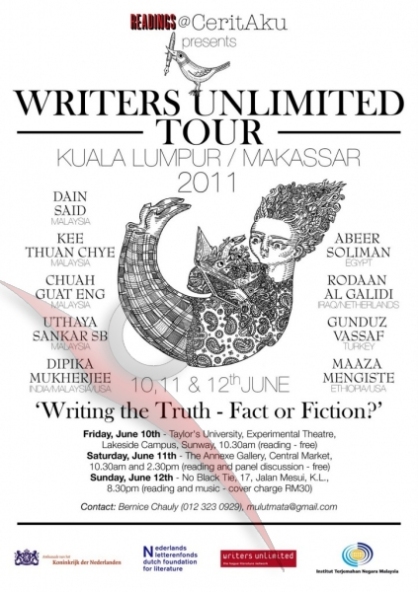 Connecting writers with each other and with audiences, across borders of cultures and countries. That is the mission of Writers Unlimited (formerly known as Winternachten), the international literature festival. In an annual event in The Hague, and in tours across the world, Writers Unlimited brings together writers and poets. During those encounters, they exchange – before an audience and amongst each other – their literary work, their experiences, dreams and ideas. In all langagues and in all their cultural diversity.
Connecting writers with each other and with audiences, across borders of cultures and countries. That is the mission of Writers Unlimited (formerly known as Winternachten), the international literature festival. In an annual event in The Hague, and in tours across the world, Writers Unlimited brings together writers and poets. During those encounters, they exchange – before an audience and amongst each other – their literary work, their experiences, dreams and ideas. In all langagues and in all their cultural diversity.
From 9 to 17 June, four authors will travel with us in a combined tour to Indonesia and Malaysia: Writer and columnist Gündüz Vassaf from Turkey, poet Rodaan Al Galidi from The Netherlands, writer and storytaller Abeer Soliman from Egypt, and writer Maaza Mengiste from Ethiopia/USA.
In Malaysia we perform in Kuala Lumpur, for a general audience and for students. Our partner in Kuala Lumpur is the writer Bernice Chauly, who last year joined us in tours to Cape Town, Suriname and the Antilles. She inivted four authors from Malaysia to perform together with our writers: Dain Said, Kee Thuan Chye, Chuah Guat Eng, Uthara Sankar SB and the Indian writer Dipika Mukherjee.
From Kuala Lumpur we fly to Makassar, on the island of Sulawesi, Indonesia. Here we co-operate with the newly opened cultural center Rumata Art Space. The director, writer Liy Yuianti Farid was one of our participating writers in the January 2011 festival in The Hague. Our four writers will perform in Makassar with local writers and poets: Shinta Februiany, Hendra Gunawan ST, Erni Aladjai and Hamran Sunu, and the renowned poet Sapardi. We will perform not only in Makassar, but also for school pupils in the village of Galesong, and for the local community on the island of Barranglompo.
During the performances, all the authors will read from their work in the original language. Translations into English and/or Indonesian will be projected simultaneously.
The Program:
Reading at Taylor’s University – Kuala Lumpur
The first performance in this tour is in Kuala Lumpur in the Experimental Theatre in Taylor’s University. The writers will read from their work, and talk with the students and other visitors. The four writers invited by Writers Unlimited – Gündüz Vassaf (Turkey), Maaza Mengiste (Ethiopia/USA), Abeer Soliman (Egypt) and Rodaan al Galidi (Netherlands/Iraq) – will perform together with the Malaysian authors Dain Said, Kee Thuan Chye, Chua Guet Eng, Uthara Sankar SB and the Indian writer Dipika Mukherjee. All writers will read in their own language, and their texts will simultaneously be projected on screen in English translation. Admission is free.
Taylor’s University – Experimental Theatre – Kuala Lumpur – Fr 10 Jun – 10.30 hrs
Opening programme – Kuala Lumpur
The opening programma in The Annexe Gallery in Kuala Lumpur consists of readings by the authors, and a panel discussion. Part one stars at 10.3am, part two at 2.30pm. Admission is free. The four writers invited by Writers Unlimited will participate: Gündüz Vassaf (Turkey), Maaza Mengiste (Ethiopia/USA), Abeer Soliman (Egypt) and Rodaan al Galidi (Netherlands/Iraq). They will perform together with the Malaysian authors Dain Said, Kee Thuan Chye, Chua Guet Eng, Uthara Sankar SB and the Indian writer Dipika Mukherjee. The discussions are moderated by the Malaysian writers Amir Muhammad and Umpagan Ampikaipakan. Admission is free.
Annexe Gallery, Kuala Lumpur – Sa 11 Jun – 10.00 hrs
Readings and music – Kuala Lumpur
An evening with reading and music. Eight writers will read from their work in the original language. English translations will be projected on screen simultaneously. With Gündüz Vassaf (Turkey), Maaza Mengiste (Ethiopia/USA), Abeer Soliman (Egypt) and Rodaan al Galidi (Netherlands/Iraq), Dain Said (Malaysia), Kee Thuan Chye (Malaysia), Chua Guet Eng (Malaysia), Uthara Sankar SB (Malaysia) en Dipika Mukherjee (India). Writer Bernice Chauly is the MC. Venue: ‘No Black Tie’, 17, Jalan Mesui, Kuala Lumpur.
No Black Tie, Kuala Lumpur – Su 12 Jun – 20.30 hrs
Cover charge RM 30
Opening Makassar International Writers Festival 2011
The opening night of the festival. With a short movie screening of ‘Tribute to Mohammad Salim’. Salim is the translator of the classical maniscript of ‘I La Galico’. The distinguished poet Sapardi Djoko Damono will perform this evening. Rodaan al Galidi will read from the classical manuscript, together with three Indonesian poems. Detailed programme will follow soon.
Tickets: Limited seat, contact eventrumata@gmail.com.
Rumata’ Art Space, Makassar, Indonesia – Tu 14 Jun – 19.00 hrs
Writing in the Era of the New Media – Makassar
A programme with Abeer Soliman (Egypt), Tinrity The Naked Traveler (Indonesia) and others. Detailed information will follow soon.
Rumata’ Art Space, Makassar, Indonesia – Th 16 Jun – 16.00 hrs
The United Nations of Fish
‘The United Nations of Fish, A Fundraising Dinner’. Writers read from their work during dinner, as a fundraising event for the newly opened Rumata Art Space. The evening is organised together with Janet deNeefe, director of the Bali book festival. The four writers on tour for Writers Unlimited will perform together with ’Aisha the little chef’, Sese Lawing and local poets. Ticket price is Rp 200,000, to be purchased via eventrumata@gmail.com.
Rumata’ Art Space, Makassar, Indonesia – Th 16 Jun – 19.00 hrs
For more information go to the website of Writers Unlimited.
—
(post taken from: Latitudes.nu | Writers Unlimited — Writers Tour to Indonesia and Malaysia)
Truth in fiction by Daphne Lee
July 3, 2011
A recent gathering of authors elicits descriptions like ‘inspiring’ and ‘entertaining’.
IT’S been several years since Kuala Lumpur played host to a literary festival, so the city’s book lovers were understandably excited when Malaysian writer and poet Bernice Chauly announced the Writers Unlimited Tour KL/Makassar 2011 a couple of months ago.
At the time, there was some doubt whether the festival would happen as the organisers were having problems raising the necessary funds (a common problem faced by arts and literature groups all over the world). Fortunately, Chauly’s appeal for RM22,000 was met in the nick of time by the Embassy of the Kingdom of the Netherlands and Institut Terjemahan Negara Malaysia.
The event was jointly organised by Writers Unlimited and Readings@CeritAku. Writers Unlimited, formerly known as Winternachten, is an initiative that organises an annual international literature festival in The Hague, as well as literary events abroad, in cooperation with local partner organisations. Readings@CeritAku is Chauly’s creation, a showcase (held at KL café-bar No Black Tie) for Malaysian writers, and a continuation of Readings, the platform for published and unpublished writers that was started by book blogger Sharon Bakar and that is now a monthly event in the Klang Valley.
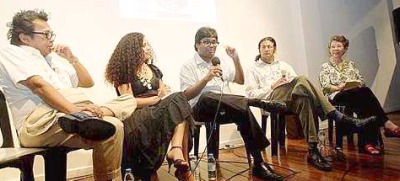
Going great guns: The afternoon session at the Writers Unlimited event featured moderator Umapagan Ampikaipakan (with mic) and writers (from left) Dain Said, Abeer Soliman, Rodaan Al Galidi, and Chua Guat Eng.
Chauly met Writers Unlimited director Ton van de Langkruis at the UtanKayu Literary Biennale in Jakarta back in 2009 and through him became part of the touring festival. She is the first Malaysian to have toured with them and this is the first time the festival has come to Malaysia.
The festival in KL lasted for three days and comprised readings at Taylor’s University, readings and panel discussions at the Annexe Gallery, and more readings at No Black Tie.
I attended the readings and panel discussions on the second day of the festival and was inspired as well as thoroughly entertained by what I heard. The Annexe Gallery at Central Market was an ideal venue for these sessions, being small enough to create a sense of intimacy between the writers and the audience.
Two sessions split the nine featured writers into two groups. Gündüz Vassaf (Turkey), Maaza Mengiste (Ethiopia/US), Dipika Mukherjee, Uthaya Sankar S.B., and Kee Thuan Chye appeared in the morning, while Rodaan Al Galidi (Iraq/Netherlands), Abeer Soliman (Egypt), Chua Guat Eng and Dain Said appeared after lunch.
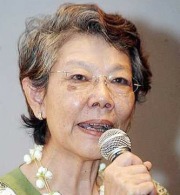
Chua Guat Eng: Fiction allows her to explore things, and leave them in a state that allows further exploration.
The writers read published and unpublished works, and then answered questions posed by sessions’ moderators Amir Muhammad and Umapagan Ampikaipakan as well as the audience.
Central to the discussions was the idea of how the truth may be presented in various ways. This was in keeping with the festival’s theme, Writing The Truth – Fact Or Fiction?, which was decided jointly by van de Langkruis and Chauly.
Said Chauly at a later interview, “I wanted to work with a theme that would resonate with readers, writers and audiences here. Issues like religion, identity, nationality, conflict, corruption are issues that we deal with along with people in many parts of the world. And so we began working on the theme which would deal with writing and truth.”
The blurred lines between fact and fiction are what Chauly is more than familiar with. Her most recent collection of poetry, The Book Of Sins, is a deeply personal and painfully truthful exploration of life, love, death and disappointment, while her latest work, Growing Up With Ghosts (to be published by Matahari Books in August), is a fictive memoir based on her Chinese-Punjabi family’s history.
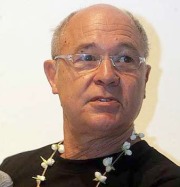
Gündüz Vassaf: Writers should avoid dealing with only their own truth and view themselves and their beliefs with a critical eye, questioning them constantly.
Unfortunately, she did not read from her work at the sessions I attended. However, the featured writers I did hear presented richly diverse material in a variety of voices and styles, all reflecting their lives, their experiences and the places they’re from. Based on truth, the work was written and presented as fiction.
Maaza Mengiste said, “Fiction gives us breathing room – gives our imagination room to play and helps us fill the gaps left by memory.”
Her novel, Beneath The Lion’s Gaze, is set in the 1970s and describes life in Ethiopia under the repressive and cruel Derg regime.
“Writers confront the facts,” she said, “but fiction allows us to get into people’s hearts – it’s a more visceral connection. If writers remain silent we have lost everything.”
Mengiste and the other visiting writers showed how fiction is used to explore reality. Abeer Soliman, whose blog and book (Diary Of An Old Spinster) deal with the problems single women face in Egypt, spoke about how literature is used by writers in the Arab world to “run from restrictions”. She described how a certain writer got around the impossibility of writing about religion by depicting god as a mysterious and powerful man. “Reality is more surprising than fiction but we can use fiction to manoeuvre around the truth.”
I was incredibly moved by the work read by Soliman, Mengiste and Al Galidi. Al Galidi’s poems I found especially affecting. They are based on his experiences as an Iraqi refugee in The Netherlands, and, in translation (Al Galidi performed, with panache, the pieces in their original Dutch, but English versions were projected on to the wall behind him), the nonchalance, whimsy and wry humour of the pieces underline all the more the bitter irony of the situations they describe.
I had a less favourable reaction to Dipika Mukherjee’s reading of the prologue of her soon-to-be published novel Thunder Demons. The piece describes the murder of a beautiful young Tibetan woman at the behest of a corrupt Malaysian politician and sounded to me more like gossipy reportage than creative fiction.
While I don’t deny the importance of writing about controversial events and “outing” leaders guilty of committing atrocities, I feel that there is no merit in simply presenting the same “facts” as discussed in coffee shops and taxis up and down the country. Sorry, but a bunch of adjectives and fictitious names doesn’t make it good fiction.
I would much prefer our country’s troubles and foibles be explored through the depiction of how they have impacted ordinary Malaysians. Perhaps Mukherjee’s book goes on to do this and if so, the prologue is misleading.
Chua Guat Eng, in answer to a question on why writers choose to write fiction, said that this was a form that allowed her to explore things and leave them in a state that allows for further exploration. It seems to me that this approach helps a writer avoid the pitfalls of preaching just one view point, thus coming across as didactic.
To avoid didacticism, Gündüz Vassaf advised writers to avoid dealing with only one truth – their own. He stressed the need to view oneself and one’s beliefs with a critical eye, questioning them constantly.
Kee Thuan Chye read an amusing story that left no one in doubt about his politics. He has always worn his heart on his sleeve in any case, and is admirably forthright in his articles for online news sites MalaysiaKini and Malaysian Digest. I think he has the potential to create powerful and affecting fiction. But first, he needs to stop writing stories as though they are op-ed pieces. (Kee was an associate editor at The Star and also editor of the paper’s Mind Our English column.)
One of my favourite stories from the sessions was Uthaya Sankar S.B.’s Cat, an absurdist tale of a multi-lingual feline who learns that the most successful civil servants are seen, not heard.
The story ends with Uthaya stating his point rather too plainly, but at least the rest of the story manages not to suggest that Malaysians are unable to draw conclusions without the aid of an instruction manual. And I have to say, the writer’s deadpan expression leads me to believe he would do well as a stand-up comedian.
I left the sessions wishing there were more such events to look forward to. When I e-mailed Chauly to ask if Writers Unlimited would be back, she replied, “Writers Unlimited has had its share of budget cuts in the arts and there is a real possibility that they will lose their funding for these tours in two years.” However, we should not rule out the possibility of Chauly organising an event of her own.
“I think its important to have a regular literary festival in KL,” said Chauly in her e-mail. “I think the model that I have learnt from this festival and from the tours is that it’s important to keep it small enough to engage the writers and the audiences. I also have a sense of how the literary scene works here, having organised readings for so many years now. So, as an organiser, a writer and a reader, I have a better idea, more so now than ever, how to make a literary festival in KL work.
“Rodaan Al Galidi took me aside after the final reading on Sunday and said, ‘For 11 years I have been to literary festivals, and this is the first time I have been to a festival like this. It is so great, thank you.’ ”
My sentiments exactly.
——
(Post taken from: The Star: Truth in Fiction)
Creatures
November 8, 2010
A part of HerStory film project, Creatures tells the story of a young woman who yearns for her lover through a journey of prose and metaphor, and explores how the Greek notions of love still apply today.
Directed by Bernice Chauly
Written by Nadira Ilana
Music by Flica
Visuals by Fairuz Sulaiman
Funded by Friedrich Naumann Stiftung
Winternachten Antilles/Suriname 2010: “A sense of belonging”
August 11, 2010
‘A sense of belonging’, was the theme of a combined writers’ tour by Winternachten to the Dutch Carribean and Suriname. For two weeks, from 13 to 24 April 2010, writers Bas Heijne (Netherlands), Yasmine Allas (Netherlands/Somalia), Bernice Chauly (Malaysia) and Iman Humaydan (Lebanon) travelled through the Caribbean. They performed before a general audience, and for students and school pupils in Sint Maarten, Curaçao, Aruba en Suriname.
Winternachten collaborated with four partner organisations who organise the events on the spot, and who were responsible for the local element in the programme, by inviting writers and musicians from the region. On Sint Maarten, the programme was organised by Philipsburg Jubilee Library, on Aruba by the Bibliotéca Nacional, on Curaçao by the Fundashon pa Planifikashon di Idioma (FPI), and in Suriname by Stichting Literair Festival Suriname.
De public programmes in the evenings consisted of literary readings, music, sometimes also with debate and film. An important part of the tour are the performances of writers in schools and universities.
(post taken from: Winternachten Antilles/Suriname 2010: ‘A sense of belonging’. Please visit the website for more information)
